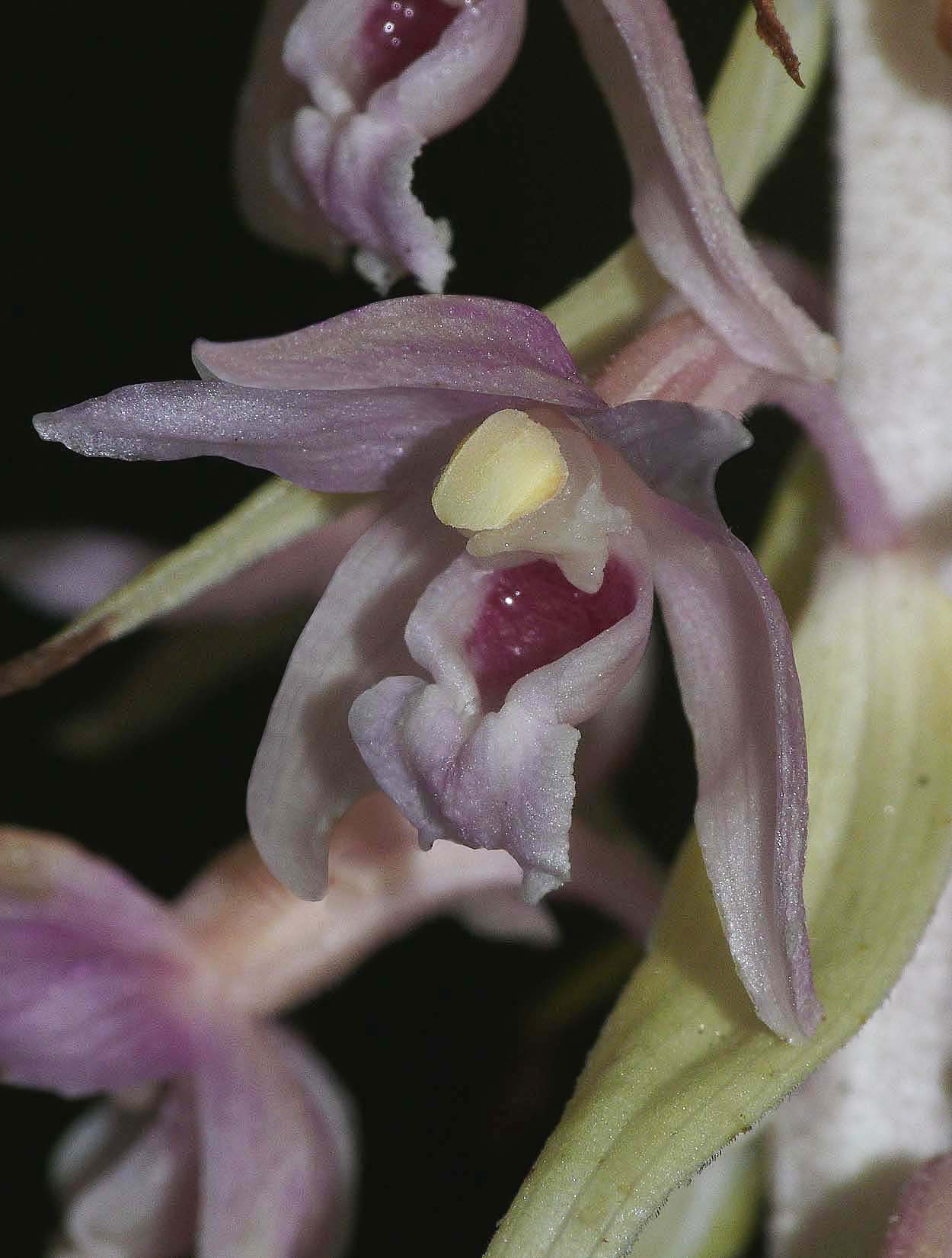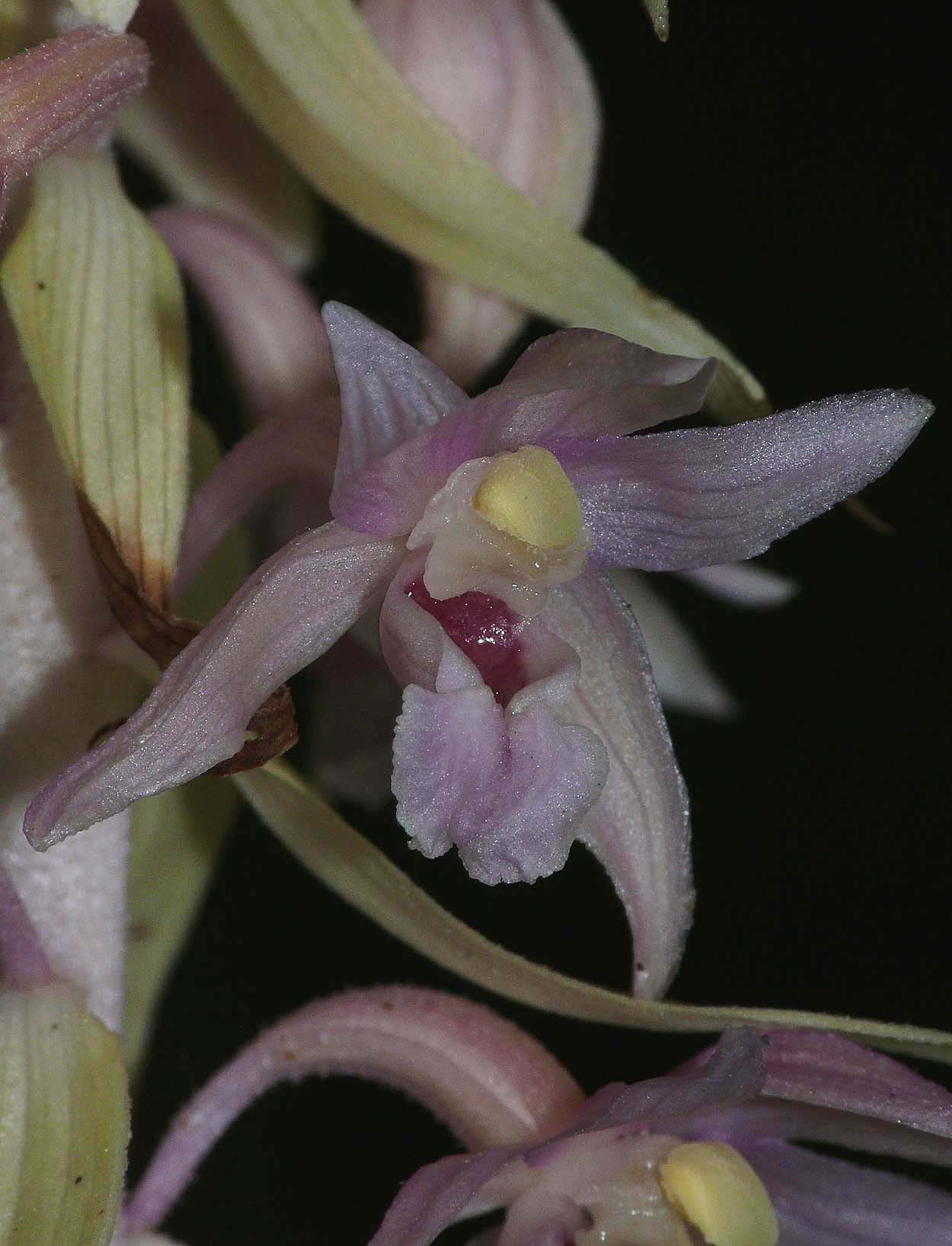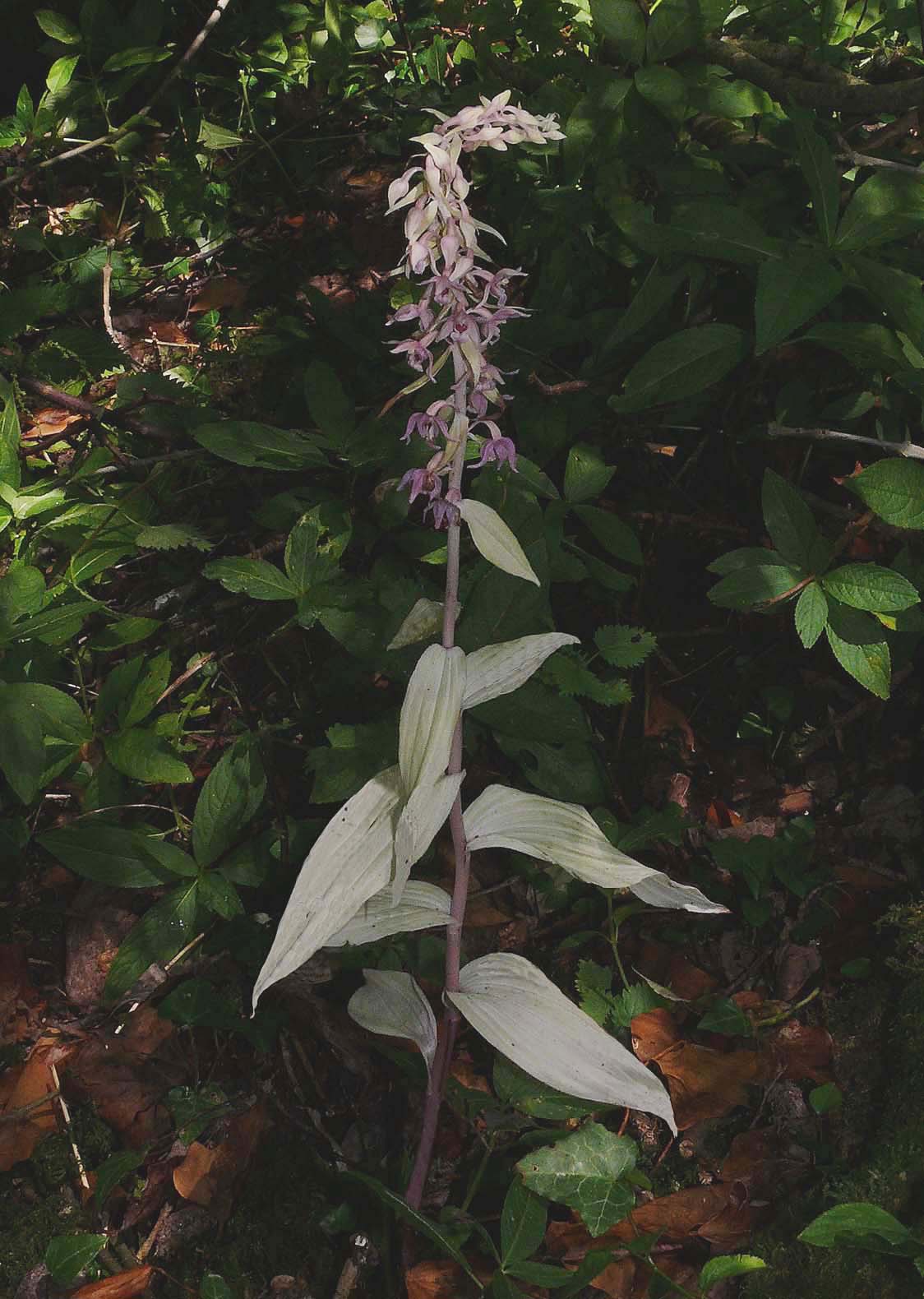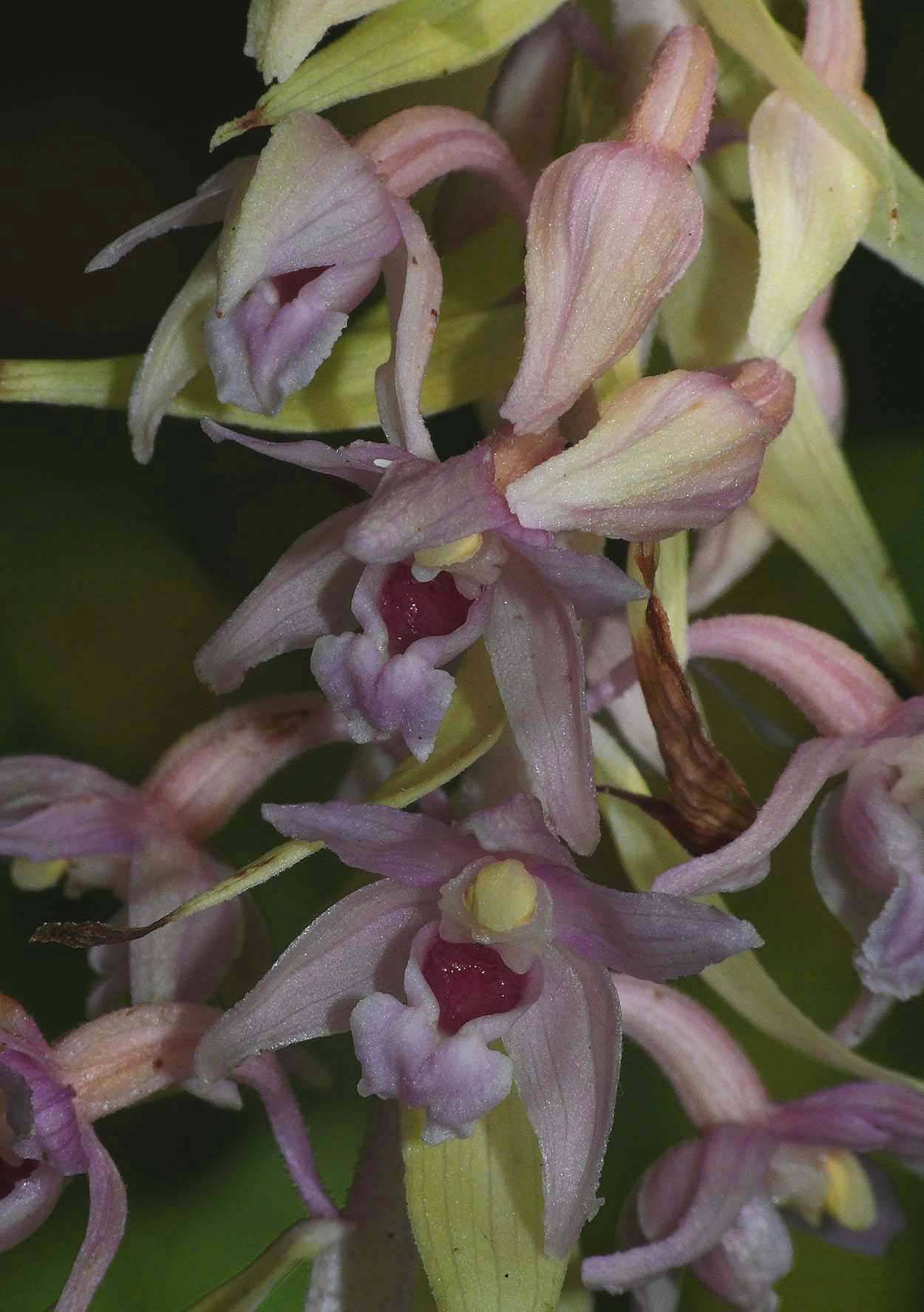E. helleborine was first described by Crantz from Baden-Wurttemburg, Germany in 1753 and since that time there have been many forms and varieties formally recognized. There has however been a great
deal of study (particularly in the UK) that seems destined to pare back the numbers, or at least the
classifications of this taxon.
E. helleborine v albiflora is an aberrant orchid that owes its existence to the plants abnormal production
of chlorophyll rather than any genetic event that has an evolutionary significance. In fact, the majority
of plants that experience this problem are generally somewhat feeble, with a lack of viability that leads
to their early disappearance.
This type of hypochromy is very rare but seems to occur within Epipactis more frequently than within
any other genus and E. purpurata is perhaps the most common species so affected. Despite the fact that
hypochromatic plants lack real viability, some colonies of E. purpurata have been known to persist for a
number of years. In cases where a plant lacks both pigment and chlorophyll it necessarily has to become
saprophytic in order to survive, it will also be pure white and therefore an albino. Complete albinism is
however very rare and is more often observed as a partial condition that effects just part of a flower or
plant. This is the case with the E. helleborine illustrated on this page, where the leaves are seen to be
pure white but the stem and flowers are pale violet, thus indicating that whilst the chlorophyll pigments
to these parts of the plant are blocked, those responsible for anthocyanin production are not.
The varietal name for this order of leaf albinism is "albifolia" whereas if just the flowers are white it
would be "albiflora". In cases where the entire orchid is chlorophyll free but has maintained anthocyanin
production throughout the plant, it is named "rosea" due to the overall pink/violet colouration.



